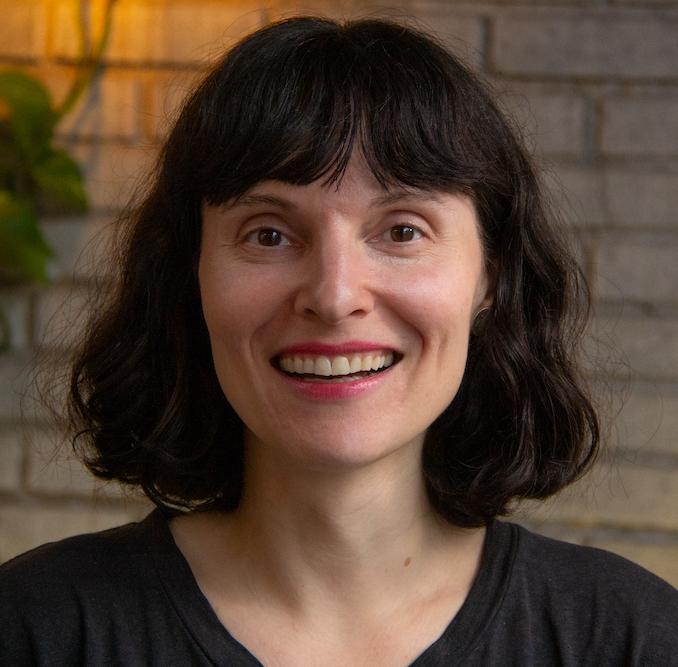Last year around this time, I attended my first official professional conference, Operations Camp. It was virtual, of course — as most things have been since early 2020 — but still full of camaraderie and connection.
This year, I opted out of Operations Camp and into Operations Summit (aka Ops Summit). The Summit was a similar format to the Camp: a two-day conference put on by The Bureau of Digital.
The first day was spent listening to five different speakers — experts in their respective fields. We absorbed valuable insights on topics ranging from Finance to Business Development to People Ops. It was enlightening — as always — to hear how other people approach these major company functions.
Day two transitioned us into small group discussions on the various topics we’d learned about on the previous day. We stayed with our same group throughout the day, allowing us to grow deeper in conversations and learn each others’ struggles, and trade advice. We took all the information we had learned and related it to our own experiences with our own teams.
Both Ops conferences I’ve now attended have been invaluable to me, personally and professionally. Perhaps one of the best lessons I’ve learned in my career is that it’s ok not to reinvent the wheel. There’s a good chance somebody else has gone through whatever challenge or new endeavor you’re going through and — often through trial and error — they’ve found an optimal solution. It’s ok to take their advice and implement something that already exists rather than create a solution from scratch.
On that note, here are some Ops Summit takeaways we plan to implement at TEN7.
Stop Selling Scopes and Start Selling Availability
On a team that requires only 30 billable hours per week from each employee, availability is straightforward. Each person on our team has a certain number of available hours each day (their “capacity”), and that’s it. Onto the next day. Why, then, are we so accustomed to estimating and planning projects based on specific deliverables rather than simply working toward one end goal (say, launching a new website) within the time we have? Yes, clients like to know that they’re getting specific deliverables.
But really, planning projects based on deliverables sets everyone up for disappointment week over week. If we promise to deliver a specific feature within a given period of time rather than simply working toward that thing as part of the larger project goal, what happens when there’s a new discovery or a team member is unexpectedly out, or any number of other project hiccups? Keeping high-level goals in mind rather than super granular ones keeps consistent momentum going. This sets everyone up for success and reduces inaccuracies when it comes to planning and velocity.
Always Ask the Question: How Can I Simplify This?
It’s really easy to be nimble and scrappy when you’re a small, tight knit team. But growth brings new challenges and requires more consistent processes and practices. It also benefits from simplicity. We’ve made it a mission to reduce brain power spent on small tasks so it can instead be harnessed and used toward the bigger, more important work we do for our clients. For example, we recently reduced our number of Harvest tasks by nearly 50% and simplified the task names to make it really easy for anyone on the team to select the task category (e.g. Programming, Project Management, Strategy) they’re working on. This seemingly small change reduces the number of unnecessary brain guessing games throughout the day, thus increasing brain power for deeper work.
Work Toward Dedicated Teams
Let’s segue from simplification to focus. One of our biggest pushes right now is on creating more dedicated, focused teams. What does this do for us? For one, more focus means less context switching for a team member, which means higher productivity and less burnout. It’s a win-win. Historically, though, as we often work on larger projects and smaller support requests simultaneously, our team is used to jumping in to help where needed.
While it’s amazing that we’ve been able to do this as our clients ask for our support, this approach often interrupts workflow. We are working toward a minimum 50% dedication for each team member on any given project, with a dedicated Support Developer to take on any and all unexpected requests and unplanned projects. This will not only improve project velocity, but also team happiness, speed of delivery, and the space to bring our mission to even more people.
You Should Know What Happens if Any Given Person on Your Team Isn’t Here Tomorrow
Ahhh the dreaded: what happens if any one of my team members suddenly leaves tomorrow? I wrote about this in last year’s Operations Camp blog post in terms of documenting all processes and how we created a centralized support system. But beyond that, we need an actionable plan. On a smaller team, you often have one person doing one job rather than a team of people doing one job, which means if you lose that one person (or if they just want to take a vacation), there’s an entire role missing from your company. More than documentation, it’s important for everyone to know exactly what they do every day and who will take over in their absence.
Conclusion
Next year, I hope Ops Summit can be in person, with more opportunity for individual connection. Until then, we’ll be making big changes here at TEN7 — for the good of our team and for our clients. We’ll continue to learn and improve year over year so we can continue to Make Things That Matter.
